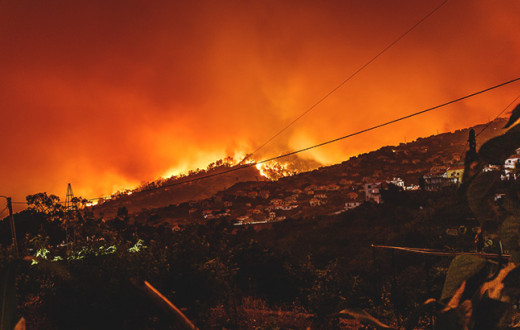By Rory Pasquariello I Posted: Dec 23, 2018
While most people are thinking of ways to volunteer at soup kitchens and senior centers during the holiday season, others are taking an environmentalist approach to volunteering. Every month, groups of Bayonne, NJ residents venture out to the city’s shores to pick up trash washed up from the Kill Van Kull and the Hackensack River, or dispelled from the city’s 30 combined sewer overflow outlets. The effort helps to beautify the parks and ensure that trash ends up in landfills instead of bodies of water.
The sanctity of nature and the mind
Dhwani Shelat, a recent cleanup crew member, sees the activity as more than a good deed done by a good Samaritan. To Shelat, a yoga and meditation instructor, it’s an exercise in mindfulness and a way to de-stress.
“When you meditate, you start moving away from I and me. You start looking into broader aspects where there’s a sense of belonging,” Shelat said. “When there’s belonging, you feel responsible for where you live.”
Shelat and her husband, both Jersey City residents, attended shoreline cleanups in October and November at Dennis Collins Park in Bergen Point. For the next cleanup on December 15 at Rutkowski Park, they hope to come with friends from Bayonne.
“We need to treat nature as sacred. This will foster sensitivity, and a sensitive person can’t help but care for the environment.” — Dhwani Shelat
Shelat runs a Facebook page called “I Meditate Bayonne” where residents who practice meditation organize get-togethers. The cleanups are consistent with her belief in the sanctity of nature and the mind.
“We need to treat nature as sacred,” said Shelat. “This will foster sensitivity, and a sensitive person can’t help but care for the environment.”
The benefits of volunteering
Her beliefs are consistent with many studies that show that volunteering time in an altruistic way helps people stay active and feel more connected to their communities, which wards off feelings of loneliness and depression.
The depressing fact that there are eight million metric tons of plastic littering the ocean right now doesn’t deter residents from cleaning.
“If we hadn’t been doing it for so long, there would be 1,500 more bags of trash piled up on the shores,” said Mike Ruscigno, who organizes the Bayonne Nature Club with his wife, Patricia Hilliard. The group is usually composed of around 15 to 20 people, and they’re seeing new volunteers.
“People see us out there cleaning up,” said Ruscigno. “They’re thankful for it, and they say it looks really great. That always makes us feel good when the public comes up and thanks us for cleaning the beach. You feel like you accomplish something. You get to know your neighbors, and you really feel good about it. That’s the fun part about it.”
In September, Boy Scout Troop 25, Bayonne City Council President Sharon Ashe-Nadrowski, and Second Ward Councilman Sal Gullace attended a cleanup. Meanwhile, the city hosts a citywide cleanup for Earth Day in the spring.
“One of the best things about it is you get to go to an area along the beaches and along parks you ordinarily wouldn’t walk out on,” Ruscigno said. “It’s almost like a treasure hunt. You never know what you’re going to see out there and what you’re going to find.”
Rubber ducks and car tires seem to excite volunteers.
The plastic menace
Shelat is focused not only on cleaning up trash after it’s discarded, but on not creating trash to begin with. She cheered on Jersey City as it banned single-use plastics, and the state of New Jersey for considering a state-wide ban.
“I think everybody is aware that plastics are harmful,” said Shelat, comparing society’s collective addiction to plastic to smoking. “They know it’s bad for them, and they can’t just quit.”
Those interested in volunteering can contact the Bayonne Nature Club on Facebook or visit its website at bayonnenatureclub.org. While the cleanups are a walk in the park, they aren’t necessarily easy.
“They said you’re going to get dirty, but we didn’t know what they meant,” said Shelat, who wished she came more prepared for her first cleanup in October. “You want to be prepared to get dirty.”
Originally published on hudsonreporter.com



















